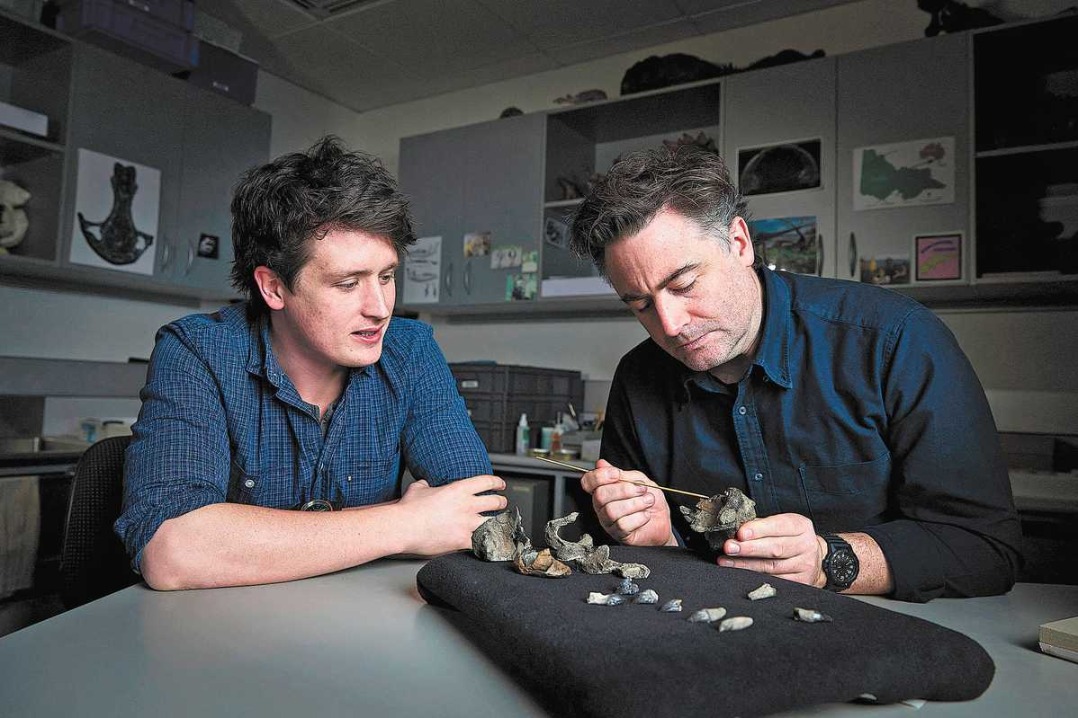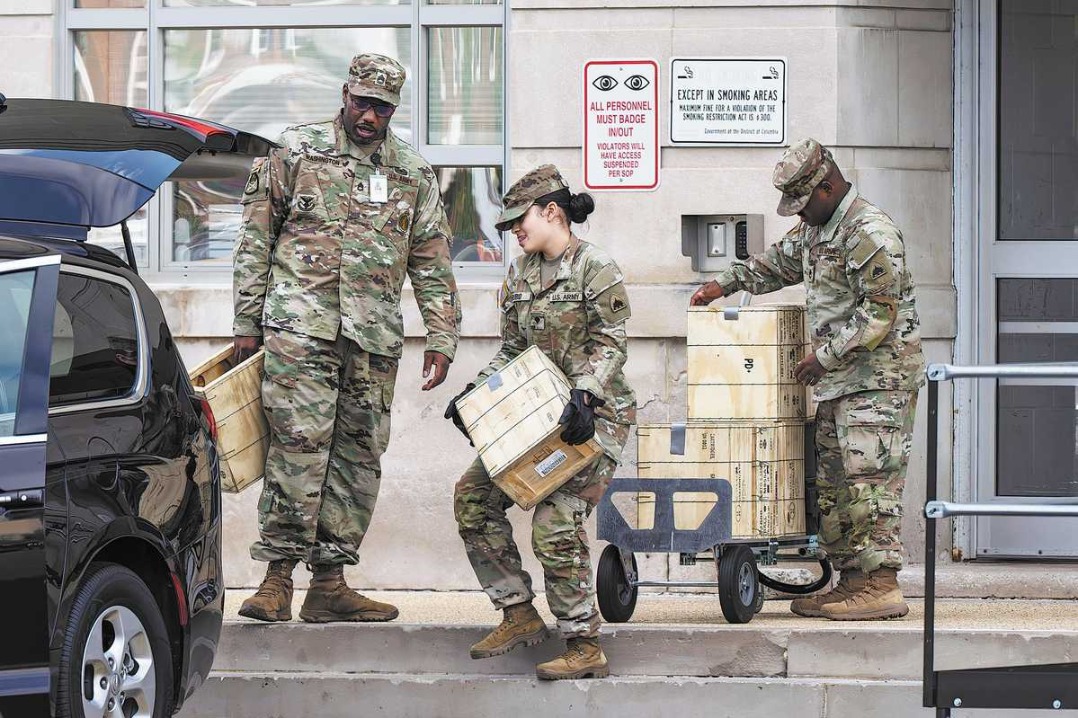Is the UK-US special relationship about to end?


It's a running joke in my family that I tell each of my grandchildren, in the strictest confidence of course, that they are my favorite. This conspiratorial approach to grandfathering is based entirely on the premise that neither grandchild will speak to the other about my whispered preferences.
I'm sure you've immediately spotted the flaw in my Machiavellian technique of building family relationships. However, the fact that I've been rumbled by both grandchildren hasn't deterred me from doubling down on my secret assurances that "you really are my favorite".
The reason I'm sharing this with you is because a similar strategy has been operating on the world stage for thousands of years. The history of diplomacy is the history of proclamations of everlasting friendship between nations, often ratified by formal alliances, ententes and declarations of "special relationships".
The flaw in this approach has invariably been exposed when national interests diverge or when a "new best friend" appears on the scene, offering greater diplomatic, economic, security or other benefits, often at the expense of the "old best friend" who gets sidelined, ignored, or even dumped.
We could well be seeing this process in action now if we examine the changing relationship between the United Kingdom and the United States. The term "special relationship" has frequently been used to describe the close political, diplomatic, economic, cultural and historical ties between the two countries.
It first came into common parlance after being used in the famous "Iron Curtain" speech by former British prime minister Winston Churchill in 1946.
Since then, it has been shorthand for an inseparable, joined-at-the-hip, "you're my favorite", Anglo-American alliance. Or so we may have thought.
On closer inspection, however, the "special relationship" had cracks from the very start, with the terminology often being used as more of a public relations exercise, frequently reflecting wishful thinking by the British. By continually using the phrase, the UK hoped that its declarations of grandfatherly favoritism would be reciprocated, bolstering its postwar, post-imperial, declining status in the world.
The US' policy toward the UK in the immediate period after World War II was a good example of the special relationship not being quite so special. US military aid for Britain during the war had been arranged in accordance with the US' Lend-Lease Act of 1941. This had attached financial strings to the aid, ensuring that all the military hardware and other essential war supplies lent by the US would be returned or repaid with interest after the war. The financial burden this placed on the UK in the postwar period, on top of its losses during the war, effectively bankrupted the country.
It accelerated the UK's decline as a major world power, hastened the breakup of the British Empire, and paved the way for the US to become a superpower. It was not until 2006 that the UK was finally able to pay off its lend-lease financial debt to its so-called best friend. So much for the special relationship.
Ten years after Churchill's landmark speech, the special relationship was once again under strain. During the 1956 Suez Crisis, then-US president Dwight Eisenhower threatened to bankrupt Britain by undermining the pound sterling. This was in response to the Anglo-French invasion of Egypt to seize back control of the recently nationalized Suez Canal.
Washington's public censure of Britain contributed to the resignation of then-prime minister Anthony Eden in January 1957 and put a big dent in the special relationship.
Fast-forward another decade, and further cracks appeared in the relationship. This time, it was over the US' escalation of the war in Vietnam. In 1965, the Labour prime minister at that time, Harold Wilson, to his eternal credit, refused then-US president Lyndon Johnson's request to send British troops to Vietnam. Instead, Wilson attempted to mediate peace, a move that prompted a withering response from Johnson: "I won't tell you how to run Malaysia and you don't tell us how to run Vietnam."
Despite cracks such as these appearing intermittently in the special relationship, the US and the UK have generally adopted a united front, though as with my grandfathering analogy, they haven't always been the only "favorites".
For example, the US-Israel relationship has commonly been described as special, as currently exemplified by the US administration's unwavering support for Israel. Despite the horrors inflicted by the Israeli government on the people of Gaza, the US administration has been reluctant to condemn Israeli policy and risk alienating the influential Jewish community in the US.
Despite various Anglo-US difficulties over the years, the trans-Atlantic alliance has generally held firm. However, the new US administration could be a game-changer, putting the historic special relationship at risk.
Fundamentally, Britain has a clear choice facing it. One choice is to double down on its subservient role as America's European acolyte. The other, bolder choice is for Britain to distance itself from its historical ally, assert its independence, establish new international relationships, and redefine its place in the world.
British Prime Minister Keir Starmer is very much a pragmatist and will be nervous about upsetting the special relationship with America. However, he should also be nervous about upsetting the British public by acquiescing with the thinking of a US president whose "America First" agenda is at odds with UK interests and ideals. Political leadership is about inspiring people with a vision for the future, but it's also about listening and responding to the people when they speak with a strong, unified voice.
In both aspects, Starmer needs to think clearly before hitching himself to the US' wagon.
A recent poll by the Pew Research Center found that 62 percent of British people had no confidence in US President Donald Trump "to do the right thing regarding world affairs".This was backed up by a clear majority (across the 24 nations polled) viewing him as "arrogant and dangerous".
It's not difficult to see the reasons for this. The US administration's "America First" policies have alienated the vast majority of Britons. Its hostile and disruptive tariffs; its combative attitude toward its NATO allies; its bullying of Canada, Greenland, Mexico and Panama... All these have alienated the British public.
Starmer has to walk a tightrope differentiating between the American people, with whom good relations need to continue, and the current US administration which is so detrimental to British interests.
Letting go of the US "special relationship" mentality is essential for the UK's progress. Like my grandfathering technique, Britain needs to forge an array of new special relationships across the world, notably in Europe, the Middle East and Asia. It's time for Starmer to display some real leadership and stop telling Trump, "You're my favorite".
The author is a British historian and former principal of Sha Tin College, an international secondary school in Hong Kong.
The views do not necessarily reflect those of China Daily.































